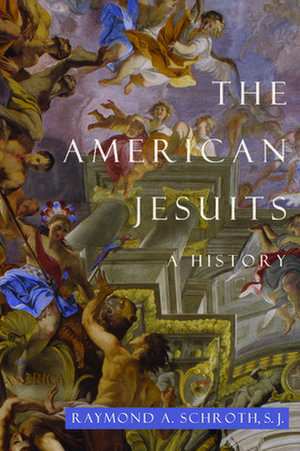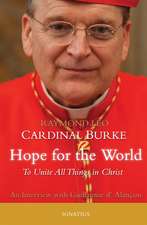The American Jesuits – A History
Autor Raymond A. Schrothen Limba Engleză Paperback – 30 sep 2009
With infectious energy and a genuine gift for storytelling, Raymond A. Schroth recounts the history of Jesuits in the United States. The American Jesuits isn't simply a book for Catholics; it's for anyone who loves a well-told historical tale. For more than 450 years, Jesuit priests have traveled the globe out of a religious commitment to serve others. Their order, the Society of Jesus, is the largest religious order of men in the Catholic Church, with more than 20,000 members around the world and almost 3,000 in the United States. It is one of the more liberal orders in the Church, taking very public stands in the U.S. on behalf of social justice causes such as the promotion of immigrants' rights and humanitarian aid, including assistance to Africa's poor, and against American involvement in "unjust wars." Jesuits have played an important part in Americanizing the Catholic Church and in preparing Catholic immigrants for inclusion into American society.
Starting off with the first Jesuit to reach the New World--he was promptly murdered on the Florida coast--Schroth focuses on the key periods of the Jesuit experience in the Americas, beginning with the era of European explorers, many of whom were accompanied by Jesuits and some of whom were Jesuits themselves. Suppressed around the time of the American Revolution, the Society experienced resurgence in the nineteenth century, arriving in the U.S. along with waves of Catholic immigrants and establishing a network of high schools and universities. In the mid-twentieth century, the Society transformed itself to serve an urbanizing nation.
Schroth is not blind to the Society's shortcomings and not all of his story reflects well on the Jesuits. However, as he reminds readers, Jesuits are not gods and they don't dwell in mountaintop monasteries. Rather, they are imperfect men who work in a messy world to "find God in all things" and to help their fellow men and women do the same.
A quintessential American tale of men willing to take risks -- for Indians, blacks, immigrants, and the poor, and to promote a loving picture of God--The American Jesuits offers a broad and compelling look at the impact of this 400-year-old international order on American culture and the culture's impact on the Jesuits.
| Toate formatele și edițiile | Preț | Express |
|---|---|---|
| Paperback (1) | 243.37 lei 6-8 săpt. | |
| MI – New York University – 30 sep 2009 | 243.37 lei 6-8 săpt. | |
| Hardback (1) | 528.23 lei 6-8 săpt. | |
| MI – New York University – 30 sep 2007 | 528.23 lei 6-8 săpt. |
Preț: 243.37 lei
Nou
Puncte Express: 365
Preț estimativ în valută:
46.58€ • 48.45$ • 38.45£
46.58€ • 48.45$ • 38.45£
Carte tipărită la comandă
Livrare economică 14-28 aprilie
Preluare comenzi: 021 569.72.76
Specificații
ISBN-13: 9780814741085
ISBN-10: 0814741088
Pagini: 316
Ilustrații: black & white illustrations
Dimensiuni: 152 x 229 x 15 mm
Greutate: 0.45 kg
Editura: MI – New York University
Locul publicării:United States
ISBN-10: 0814741088
Pagini: 316
Ilustrații: black & white illustrations
Dimensiuni: 152 x 229 x 15 mm
Greutate: 0.45 kg
Editura: MI – New York University
Locul publicării:United States
Notă biografică
Raymond A. Schroth, S.J., is a Jesuit priest and a journalist. He is the author of six books, including Dante to Dead Man Walking: One Reader's Journey through the Christian Classics, and American Journey of Eric Sevareid. He has also written more than 300 articles and reviews on politics, religion, and the media, which have appeared in such publications as the Los Angeles Times, Boston Globe, Newsday, and America, and he is an award-winning media critic for the National Catholic Reporter, for which he writes a regular column.
Descriere
Jesuits have played an important part in Americanizing the Catholic Church and in preparing Catholic immigrants for inclusion into American society. This book recounts the history of Jesuits in the United States.
Recenzii
“Blending history and analysis, Schroth chronicles the societys weaknesses and failures, too, including its foot-dragging on racial issues. . . . Schroth also discusses the communitys decline in numbers, but ends on a hopeful note. . . . This is a













